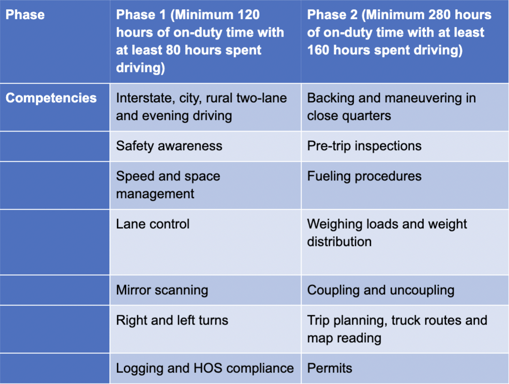By Sean Garney of Scopelitis Transportation Consulting LLC & Regulatory Consultant to DriverReach – February 2022
Overview: As the trucking industry continues to grapple with a driver shortage exacerbated by the COVID-19 pandemic, many have suggested allowing drivers under the age of 21 to operate in interstate commerce as a potential solution. That’s why Congress included a provision in the last highway requiring the Federal Motor Carrier Safety Administration (FMCSA) to launch a pilot program to study if well-trained younger drivers can operate as safely as their older counterparts.
On January 14, 2022, the FMCSA outlined the requirements of the pilot program. In its Federal Register notice, FMCSA provided additional details to help motor carriers understand the requirements and prepare for participation. Below is a summary of the primary provisions.
Which motor carriers are eligible? Not every motor carrier is eligible for the program. Motor carriers with a conditional or unsatisfactory safety rating are ineligible, as are those whose driver or vehicle out of service rates from roadside inspections are above the national averages. Additionally, carriers with an open enforcement action (Imminent Hazard, Operations OOS Orders, Patterns of Safety Violations) in the previous six years are ineligible to participate. Carriers with a DOT recordable crash rate above the national average are also ineligible. Carriers considered high risk or moderate risk, based on FMCSA’s current prioritization methodology under CSA, are ineligible.
Which types of operations are ineligible? Enrolled drivers may not transport passengers, hazardous materials, doubles or triples, or tankers, regardless of what CDL endorsements they have.
Will participating carriers be required to equip vehicles with specific safety technology? Motor carriers must equip vehicles operated by apprentices with the following vehicle safety technology: automatic or automatic manual transmission; active braking collision mitigation; forward facing video; speed limiters set at 65 mph at the pedal and under adaptive cruise control.
How do carriers apply to the program? FMCSA is planning to create a webpage to host the application forms and other helpful information for carriers interested in participating. The Younger Military Pilot Program webpage may serve as a model for the information expected to be provided.
How will carriers be selected? FMCSA will prioritize carrier applicants based on their safety performance over time, selecting only those with the highest or best relative performance.
How will it work? Once selected, carriers must establish a two-phased program to train drivers in the skills necessary to safely operate a CMV. In each phase, the apprentice must be accompanied by an experienced driver who will provide real-time coaching and evaluation of the apprentice. The apprentice must demonstrate mastery of specified competencies to move on to the next phase.

What are carrier reporting requirements? Motor carriers must submit monthly data on apprentices’ activity (e.g., VMT; duty hours, off-duty time, or breaks), safety outcomes (e.g., crashes, violations, and safety-critical events) and additional supporting information (onboard monitoring systems or investigative reports). In addition, carriers must notify FMCSA within 24 hours of an injury or fatal crashes involving an apprentice; an apprentice receiving an alcohol-related citation in any vehicle; if an apprentice leaves the program or the carrier; or if the apprentice fails a random or post-crash drug/alcohol test.
Which drivers are eligible to participate? Motor carriers must hire apprentices that meet specific eligibility requirements and must match them with experienced drivers.
Apprentice requirements: Among other requirements, drivers must not have had his or her license suspended, revoked, canceled, or disqualified or a violation related to 49 CFR §383.51.
Experienced driver requirements: Experienced drivers must be at least 26 years old with at least five years of experience operating a CMV in interstate commerce. An eligible experienced driver must not have had a preventable reportable accident, or a pointed moving violation.
What happens when an apprentice completes the program? Apprentices that complete both phases of the program may continue to operate in interstate commerce without an accompanying experienced driver; however, the motor carrier will still be required to provide monthly data until the driver turns 21.
How many motor carriers/drivers can participate? FMCSA estimates that approximately 1,000 motor carriers will participate in the program, employing a total of 3,000 active apprentices. Once an apprentice leaves the program, a new apprentice may join the program, though no more than 3,000 apprentices may be enrolled in the program at the same time.
How long will the program last? The maximum duration of the program is three years, though FMCSA may end the program sooner if it determines enough data has been collected or safety has been compromised. At the conclusion of the program, FMCSA will report its findings and recommendations, including any suggested amendments to laws and regulations to Congress.
How soon will it take for FMCSA to launch the program? While a precise timeline hasn’t been announced, FMCSA has been taking steps to launch the program as expeditiously as possible. In addition, the Biden Administrations recently published a Trucking Action Plan calling on FMCSA to launch the program within 60 days making February 14, 2022 the target.
Conclusion: While the Safe Driver Apprenticeship Pilot Program is an excellent opportunity for motor carriers to begin tapping into a younger driver pool, motor carriers will bear a considerable burden in establishing a registered apprentice program and monitoring driver progress to reap its benefits. Ultimately, the data provided through this program could provide justification for FMCSA to amend its rules to allow younger drivers permanently.
Stay up to date on CDL trucking trends! Be sure to check out the DriverReach blog for other relevant articles and head over to our webinars page for an up-to-date list of upcoming events and on-demand recordings.
Listen to Taking the Hire Road podcast, hosted by Jeremy Reymer and in collaboration with FreightWaves, for timely conversations with industry experts. For more information, or to join a live group demo, visit www.driverreach.com/livedemo




